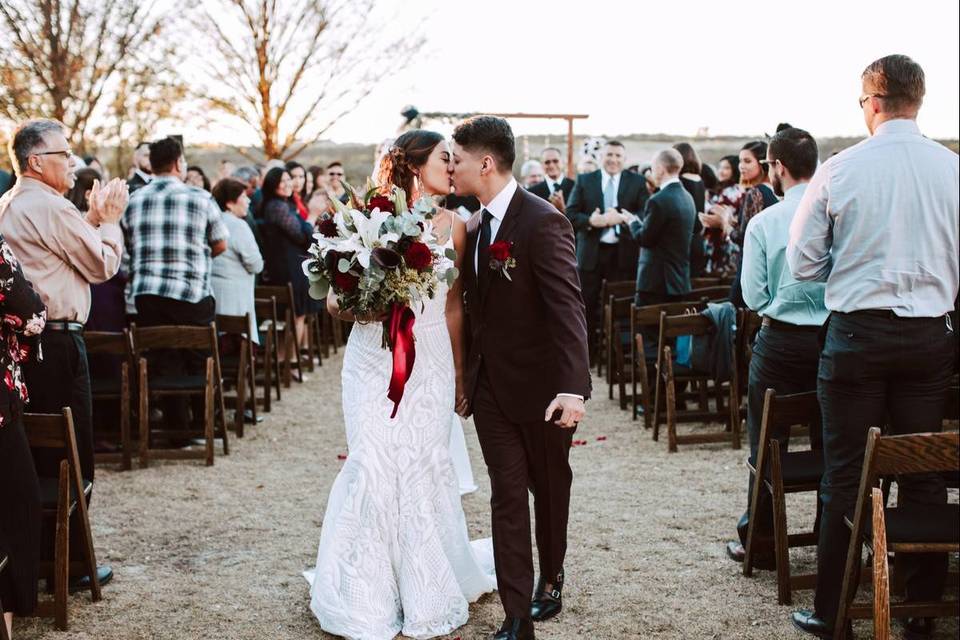The Dos and Don'ts of Apologizing in Your Relationship: How to Do It Right
There’s more to apologizing than simply saying “I’m sorry”. Here, experts share their must-know words of wisdom on the right way to apologize to your partner.


Apologizing is usually not a top favorite thing to do for most people, whether or not they’re in a romantic relationship. Apologizing to anyone is, in a sense, admitting you were at fault at one point or another. But there’s something so magically powerful about an apology. Just think about how you feel when someone who wronged you in any kind of way gets up the courage to look you in the eye and apologize. Chances are, in that type of situation, you feel pretty vindicated and, well, good about yourself. It’s just a matter of figuring out how to apologize.
“A genuine apology happens when we express empathy and accountability for the hurt feelings caused in another person after something one said or did,” explains Sofia Robirosa, M.B.A., L.M.F.T., a South Florida-licensed marital and family therapist and author of the book, The Business of Marriage. “It is truly about putting yourself in the other person's shoes and trying to understand how one's actions or words have hurt the other person and verbalizing that message.”
While an apology from a parent, a sibling or a friend is usually much appreciated, an apology that comes from a significant other is even more meaningful. Romantic relationships are quite fragile, as you’re making a continued choice to be with that person as opposed to having been born in the same family as them or having been friends since you were young children.
When done correctly, figuring out how to apologize greatly reduces the chances of sparking another similar problem in the future, notes Laura F. Dabney, M.D., relationship psychiatrist in Virginia Beach, Virginia. “The correct apology will not only clarify for the significant other what was going on with the apologizer, but will demonstrate for the significant other this alternative, relational way to apologize and clarify their thinking.”
We’re all human, therefore we all make mistakes, so it’s inevitable that we will all need to apologize at one point or another. Here are some of the expert-recommended dos and don’ts for how to apologize.
Do: Express empathy.
Recognize how your partner might feel in the situation, even if you don’t particularly agree with how they handled something or what they might have said in the heat of the moment. Expressing empathy is considering how they feel from their point of view. “This is achieved when saying things like, ‘If I were to put myself in your shoes, I can imagine that being hurtful to hear,’ or ‘I know that based on other things you have told me that XYZ matters to you, so I can see that me saying XYZ may have hurt you,’" says Robirosa.
Don’t: Be angry.
“Coming into an apology with anger shows you want to justify your feelings and the apology is not sincere,” explains Adam Jablin, life coach and relationship coach. If you’re not at a place where you can remain calm and be open to hearing what your partner has to say, it’s not worth attempting the apology, Jablin adds. “It's preparing for round number 2 of the argument.”
Do: Look inward.
Cristie Ritz-King, PsyD, LPC, of Wonder Inc. Wellness based in the Red Bank, NJ area, recommends taking a deep look at how you were (and are) acting in the situation. “Examine your behavior, your motivation and figure out what you're actually sorry for before apologizing,” she says.
Don’t: Rush through it.
If you have only a short amount of time to get your apology across to your partner, choose another time to do it. “Being in a rush and fast shows that you want it to be over,” says Jablin. “It demonstrates a lack of empathy and compassion.” He recommends finding the appropriate time, slowing down the conversation, and making eye contact—good tips for any kind of communication with your partner.
Do: Actually mean it.
“It sounds silly, but meaning it is the only thing that really matters,” says Ritz-King. “You can check all the boxes of a ‘correct’ apology and if you don't mean it, nothing else counts.” If you’re unsure why you should apologize at all, the conversation leading up to the apology needs to continue so that you can both be on the same page enough to recognize your faults.
If you have really examined your intent and you decide you aren't sorry, it’s not worth it to say you are even if it means the fight will be over. “You may be able to avoid conflict or an uncomfortable conversation by apologizing and hoping to move on, but that relief won't last long,” says Ritz-King. “If your partner is mad at you, but you aren't sorry for whatever caused the anger, then it is worth your time to examine that with each other.”
Don’t: Dismiss your partner’s feelings.
When it comes to how to apologize, Jablin recommends taking extra caution not to belittle your loved ones feelings. “If they’re hurt or angry, try your best to understand where they might be coming from,” he says. This can go along way towards expressing empathy, but it’s even more than that—it’s acknowledging that it’s OK for them to feel however they naturally feel about the situation.
Do: Check in with your partner after the apology.
If after the argument is over and you’ve apologized, your partner doesn't comment or just says "I accept the apology," Dr. Dabney suggests saying something along the lines of, "Does this help you understand the situation better?" or "Did you understand what I said or may I clarify anything further?" This can help make sure that the apology is not only accepted, but also understood.





